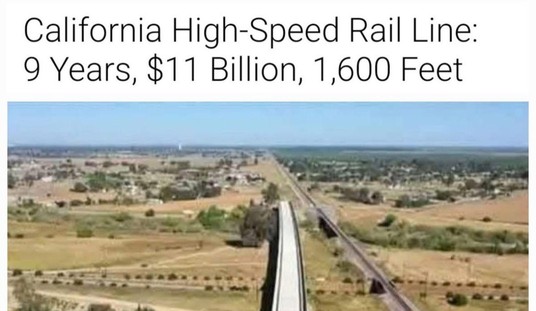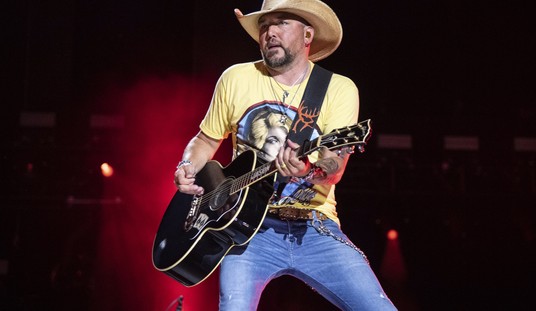I noted in Friday’s post about Ron DeSantis lifting statewide restrictions on bars and restaurants that Fauci had identified those two businesses as special risks recently. It was inevitable that he’d be asked about Florida directly in his next round of interviews.
And it was inevitable what he’d say when he was.
Even so, I’m surprised that he’d be this blunt. Trump desperately needs to win Florida and DeSantis’s “reopen everything” policy is clearly designed to hand him a talking point about economic revival there ahead of Election Day. Now here’s Fauci all but telling Florida’s voters on national television that it’s a terrible idea. (Nor is this the first term he’s singled out Florida for being too fast on reopening.) If Florida’s case counts start ticking upward in October, it’s a cinch that this clip will appear in Democratic ads.
“That is very concerning to me.”
Dr. Anthony Fauci says now the time is to double down, not ease restrictions, in regards to Florida’s decision to open up bars and restaurants. https://t.co/MijCNMRWTN pic.twitter.com/kZ2WbZsObk
— Good Morning America (@GMA) September 28, 2020
At the start of August, Fauci told the country we’d have a good chance of containing the virus if we were seeing 10,000 or fewer confirmed cases daily as we head into fall, a point he was reminded of in this interview. In reality, on Friday the country recorded 55,000 new cases. In the past two weeks, cases have risen from an average of 35,000 per day to 45,000 per day and positivity rates in some midwestern states now exceed 25 percent (although case counts remain low, by and large). Hospitalizations seem to be rising too:
As reported Covid cases continue to rise around the U.S., the number of Covid hospitalizations – which is an important, objective measure of total disease burden – have stopped their decline, and may be starting to increase again. pic.twitter.com/TxSkIR3rh3
— Scott Gottlieb, MD (@ScottGottliebMD) September 27, 2020
It’ll be a tough winter. But there is some good news from Florida. Schools are open but case counts aren’t rising among children:
A USA TODAY analysis shows the state’s positive case count among kids ages 5 to 17 declined through late September after a peak in July. Among the counties seeing surges in overall cases, it’s college-age adults – not schoolchildren – driving the trend, the analysis found…
Despite the bright spots in the data showing school-age cases declining from their summertime peak, there was one troubling trend: The rate of decline slowed in many places after schools reopened.
That might mean cases have plateaued and schools have not fueled new, large outbreaks. Or it might mean those counties are at the bottom of a U and could soon turn upward again.
Why would cases continue to drop among kids despite the close quarters of being in school? Scientists increasingly believe that it has to do with “innate immunity.” Children’s immune systems functions differently from adults’, this NYT story explains. Because they’re so young and have encountered so few pathogens, their immune systems act quickly to nuke invading germs. The adult immune system is slower, more specialized and adaptive because it’s learned to recognize most germs after years of exposure to them. Introduce a novel unrecognized pathogen like SARS-CoV-2, though, and it spreads in an adult’s system before the immune response kicks in. Introduce it into a kid’s system and it’s squashed.
Anyway, Florida’s overall number of daily cases declined by 15 percent last week, another encouraging trend. If there’s a swing state that’s apt to be severely affected by a new outbreak before Election Day, it probably won’t be Florida. It’ll be Wisconsin, where the average number of daily cases has tripled since the start of September while the number of hospitalizations has more than doubled over the same period. And it’s not all the fault of college kids, it seems:
The outbreak started about a month ago. It seemed, at first, like a product of students returning to college campuses. The University of Wisconsin at Madison brought back tens of thousands of students to campus in August. Within a week of classes starting, more than 1,000 of them tested positive, and the university shut down all in-person instruction. Other states in the Midwest saw similar spikes after colleges and universities restarted for the fall.
But those states are not seeing what Wisconsin is now. Cases are popping up in too many places, and among too many different age groups, to be blamed on college kids. In fact, every age group except 18-to-24-year-olds has seen cases rise this week, according to official data. “There’s a surge happening in cases across the state, for the most part,” Ajay Sethi, an epidemiology professor at the University of Wisconsin, told me.
Any coronavirus outbreak is bad news, but a surge in Wisconsin, at this moment, would be particularly awful. The problem is one of both political geography and poor timing. Wisconsin could determine the outcome of the presidential election: The state went for President Donald Trump in 2016 by only 22,748 votes, and both Trump and former Vice President Joe Biden have campaigned there this month. The election is little more than a month away, and if the threat of infection scares Wisconsinites away from polling places, the outbreak could play a role in who wins the state.
Wisconsin is the obvious candidate at the moment to be the swing state most directly affected by COVID-19 on Election Day. But don’t overlook Texas, where cases dropped by more than half between mid-July and mid-September but then began to rise again lately. A few weeks ago the state’s positivity rate stood at 6.6 percent. Today it’s 11 percent. A nasty new wave of infections next month could hurt Trump there in two ways, starting by depressing turnout in a state that leans red. My strong suspicion is that Democrats will turn there no matter what after nearly sweeping Beto O’Rourke to an upset win two years ago, fueled this time by fear and rage over the Ginsburg vacancy. Whether Republicans who are lukewarm about the president decide to take a risk on his behalf by lining up at a polling place is less clear. But there’s another problem for Trump, namely that a local outbreak will refocus voters’ attention away from issues that are stronger for him (e.g., the economy) and back to his handling of the pandemic. If Americans go to the polls on November 3 with anxiety about COVID at the forefront of their minds, I think he loses for sure. That’s the real risk in Florida, Wisconsin, and Texas.








Join the conversation as a VIP Member